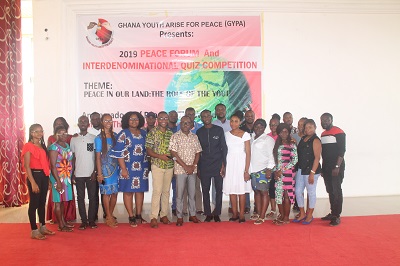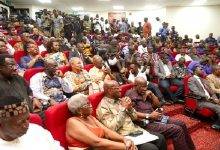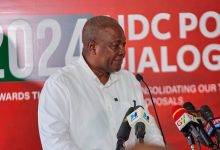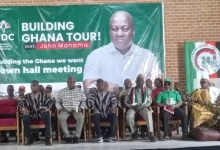
Professor Ransford Gyampo, a lecture at the Department of Political Science, University of Ghana, has observed that politics ought to be characterized not by mere tolerance, but also by accommodation between different parties.
According to him, “mere tolerance can be coupled with indifference and even hostility, accommodation requires peaceful interaction and communication between different parties or within the same party.”
Professor Gyampo made the observation at a peace forum organised by the Ghana Youth Arise For Peace, on the theme: ‘Peace in our Land-The Role of the Youth’ on Saturday.
“Pluralism is not easily achieved, sustained unless people develop the habit of political tolerance, accommodation because where there is pluralism without tolerance, the immutable result is bitter strife, much of the violence and bloodshed have engulfed many societies around the world.
“They emanated from the inability or unwillingness of people from different religious political parties or ethnic origins to be tolerant and accommodating one another since tolerance and accommodation requires we put over personal feelings aside and deal with one another on national cohesion in nation’s interest.
“We need to be friends and be able to communicate each other to do business together peacefully to achieve fruitful results, where politicians prefer to have a common objective about the well-being of the country, but differs as to the ways and means of attaining the objectives.
“The practice of democracy has not been long enough to allow for the growth of the attitudes traditions and conventions which underpin political tolerance and accommodation, political tolerance and accommodation can be developed into deep roots internalised and tradition subverted,” Prof Gyampo asserted.
Alex Oduro Mensah, President of the Ghana Youth Arise For Peace, said the United Nations World Populations prospect there are 1.3 billion youth between the ages of 15 and 24 in the world and nearly one billion of the number live in developing countries, where conflict was more likely to occur.
“Society is looking up to the church, civil society organisations and political parties to lead a joint national campaign in finding convenient way of promoting peace, unity and security in the country and we decided to propagate the peace forum in every community with objective of educating, sensitising and creating awareness of conflicting issues.
FROM DANIEL AMOO







